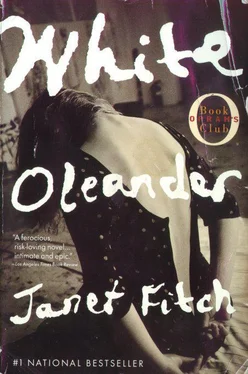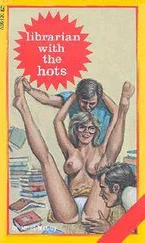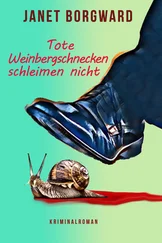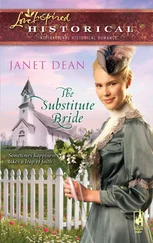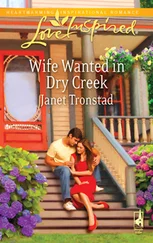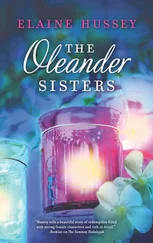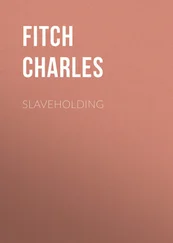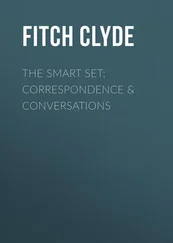Janet Fitch - White Oleander
Здесь есть возможность читать онлайн «Janet Fitch - White Oleander» весь текст электронной книги совершенно бесплатно (целиком полную версию без сокращений). В некоторых случаях можно слушать аудио, скачать через торрент в формате fb2 и присутствует краткое содержание. Жанр: Современная проза, на английском языке. Описание произведения, (предисловие) а так же отзывы посетителей доступны на портале библиотеки ЛибКат.
- Название:White Oleander
- Автор:
- Жанр:
- Год:неизвестен
- ISBN:нет данных
- Рейтинг книги:3 / 5. Голосов: 1
-
Избранное:Добавить в избранное
- Отзывы:
-
Ваша оценка:
- 60
- 1
- 2
- 3
- 4
- 5
White Oleander: краткое содержание, описание и аннотация
Предлагаем к чтению аннотацию, описание, краткое содержание или предисловие (зависит от того, что написал сам автор книги «White Oleander»). Если вы не нашли необходимую информацию о книге — напишите в комментариях, мы постараемся отыскать её.
White Oleander — читать онлайн бесплатно полную книгу (весь текст) целиком
Ниже представлен текст книги, разбитый по страницам. Система сохранения места последней прочитанной страницы, позволяет с удобством читать онлайн бесплатно книгу «White Oleander», без необходимости каждый раз заново искать на чём Вы остановились. Поставьте закладку, и сможете в любой момент перейти на страницу, на которой закончили чтение.
Интервал:
Закладка:
“What’s this music?” I asked her.
“Miles Davis,” she said. “ ‘Seven Steps to Heaven.’ ”
Seven steps, I thought, was that all it took?
Where we had sliding glass doors, Olivia had casements, open to the backyard. Instead of the air-conditioning, ceiling fans turned lazily. Upon closer examination, a big gilded birdcage held a fake parrot wearing a tiny sombrero, a cigar clamped in its beak. “That’s Charlie,” Olivia said. “Be careful, he bites.” She smiled. She had a slight overbite. I could understand how a man would want to kiss her.
We sat on the velvet couch and drank iced tea sweetened with honey and mint. Now that I was here, I was at a loss to begin. I’d had so many questions, but I couldn’t think of one. The decor bowled me over. Everywhere I looked, there was something more to see. Botanical prints, a cross section of pomegranates, a passionflower vine and its fruit. Stacks of thick books on art and design and a collection of glass paperweights filled the coffee table. It was enormously beautiful, a sensibility I’d never encountered anywhere, a relaxed luxury. I could feel my mother’s contemptuous gaze falling on the cluttered surfaces, but I was tired of three white flowers in a glass vase. There was more to life than that.
“How long have you been over there?” Olivia asked, stroking down the condensation on her glass with a manicured forefinger. Her profile was slightly dish-shaped, her forehead high and round.
“Not long. A couple months.” I nodded to the UPS package untouched on the coffee table. “What’d they send you?”
Olivia walked to a small secretary desk, opened it and found a letter opener. She slit the side of the box and lifted out two terracotta hearts. “They’re breadwarmers. You heat them and put them in the basket to keep the rolls warm.”
I was disappointed. I thought it would be something secret and sexual. Breadwarmers didn’t go with my fantasy of Olivia Johnstone.
She sat closer to me this time, arm across the back of the couch. I liked it though it made me nervous. She seemed to know exactly the effect she had on me. I couldn’t stop staring at her skin, which gleamed as if polished, exactly the color of the wallpaper, and I could smell Ma Griffe.
“Where did you go?” I asked.
“Back east. New York, Washington,” she said. “A friend had business there.”
“The BMW?”
She smiled, her overbite winking at me. She had an impish quality up close, not so perfect, but better. “No, not the BMW. He’s very married. You don’t see this man here.”
I’d been afraid she would talk about breadwarmers, but here she was, telling me about the men, as if it was the weather. Encouraged, I pressed for more. “Don’t you worry they’re going to run into each other?”
She pursed her lips, raised her eyebrows. “I do try to avoid it.”
Maybe it was true. Maybe she was. But if she was, it was nothing like the girls on Van Nuys Boulevard in their hot pants and satin baseball jackets. Olivia was linen and champagne and terra-cotta, botanical prints and “Seven Steps to Heaven.” “Do you like one of them best?” I asked.
She stirred her iced tea with a long-handled spoon, letting Miles Davis seep into our pores. “No. Not really. How about you, do you have a boyfriend, someone special?”
I was going to tell her that I did, an older man, make it sound glamorous, but I ended up telling her my sorry life history, Starr and Ray, my mother, Marvel Turlock. She was easy to talk to, sympathetic. She asked questions, listened, and kept the music coming, tea and lemon cookies. I felt I had woken up on my raft to find a yacht dropping a ladder. You never knew when rescue might come.
“It won’t always be so hard, Astrid,” she told me, brushing a lock of my hair behind my ear. “Beautiful girls have certain advantages.”
I wanted to believe her. I wanted to know those things she knew, so I wouldn’t be afraid anymore, so I’d believe there was an end to it all. “Like what?”
She looked at me close, examining the planes of my face, the bangs I cut myself now. My stubborn chin, my fat, chapped lips. I tried to look ready. She picked up my hand and held it in hers. Her hands were more delicate than I’d thought, no larger than mine, warm and surprisingly dry, but a bit rough. She twined her fingers in mine, as if we had always held hands.
“It’s a man’s world, Astrid,” she said. “You ever hear that?”
I nodded. A man’s world. But what did it mean? That men whistled and stared and yelled things at you, and you had to take it, or you could get raped or beat up. A man’s world meant places men could go but not women. It meant they had more money, and didn’t have kids, not the way women did, to look after every second. And it meant that women loved them more than they loved the women, that they could want something with all their hearts, and then not.
But I didn’t know much more about a man’s world. That place where men wore suits and watches and cuff links and went into office buildings, ate in restaurants, drove down the street talking on cell phones. I’d seen them, but their lives were as incomprehensible as the lives of Tibetan Sherpas or Amazonian chiefs.
Olivia took my hand and turned it over, brushed the tips of her dry fingers down my moist palm, sending waves of electricity up my arms. “Who has the money?” she asked, softly. “Who has the power? You have a good mind, you’re artistic, you’re very sensitive, see?” She showed me lines in my hand, her fingertips like a grainy fabric stroking my skin. “Don’t fight the world. Your carpenter friend, he didn’t fight the wood, did he? He made love to it, and what he made was beautiful.”
I thought about that. My mother fought the wood, hacking at it, trying to slam it into place with a hammer. She considered it the essence of cowardice not to. “What else do you see?” I asked.
Olivia curled my fingers up, wrapping my fate, handing it back to me.
I picked at a burn blister on my middle finger and thought about fighting the grain or not. Women like my mother, alone as tigers, fighting every step. Women with men, like Marvel and Starr, trying to please. Neither one seemed to have the advantage. But Olivia didn’t mean men like Ed Turlock or even Ray. She meant men with money. That man’s world. The cuff links and offices.
“You’ll figure out what men want and how to give it to them. And how not to.” She smiled her naughty crooked grin. “And when to do which.”
The little brass clock whirred and struck five, a music box tune, tiny chimes. So many pretty things, but it was getting late, I didn’t want to go, I wanted to find out more, I wanted Olivia to handle my future like wax, softening it in the heat of her parched hands, shaping it into something I didn’t have to dread. “You mean sex.”
“Not necessarily.” She glanced at the round mirror over the fireplace, at the drop-top desk with its secret drawers and pigeonholes. “It’s magic, Astrid. You have to know how to reach up and pull beauty out of thin air.” She pretended to reach up and grab a firefly, then opened her palms slowly and watched it fly out. “People want a little magic. Sex is its theater. There are sliding panels and trapdoors.”
The night magic. Never let a man stay the night. But my mother’s theater was her own pleasure. This was something quite different. I was excited that I knew this.
“The secret is—a magician doesn’t buy magic. Admire the skill of a fellow magician, but never fall under his spell.” She rose and collected our glasses. And I thought of how Barry seduced my mother, his smoked mirrors and hidden trained doves. She never chose him, not really, but she gave him everything. She would always be his, even if he was dead. He had shaped her destiny.
Читать дальшеИнтервал:
Закладка:
Похожие книги на «White Oleander»
Представляем Вашему вниманию похожие книги на «White Oleander» списком для выбора. Мы отобрали схожую по названию и смыслу литературу в надежде предоставить читателям больше вариантов отыскать новые, интересные, ещё непрочитанные произведения.
Обсуждение, отзывы о книге «White Oleander» и просто собственные мнения читателей. Оставьте ваши комментарии, напишите, что Вы думаете о произведении, его смысле или главных героях. Укажите что конкретно понравилось, а что нет, и почему Вы так считаете.
